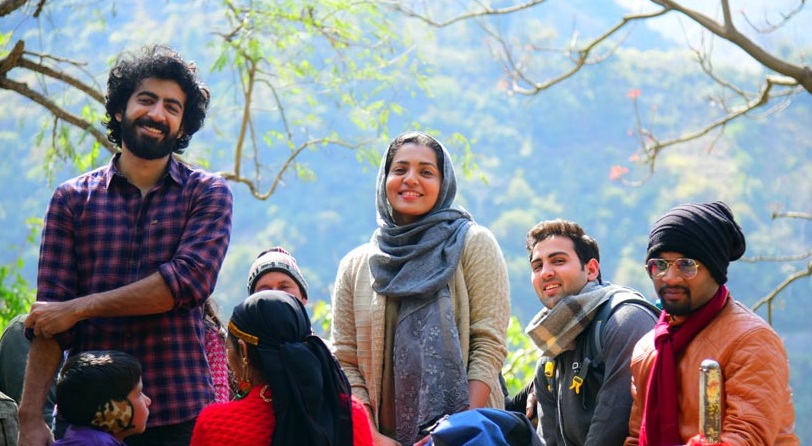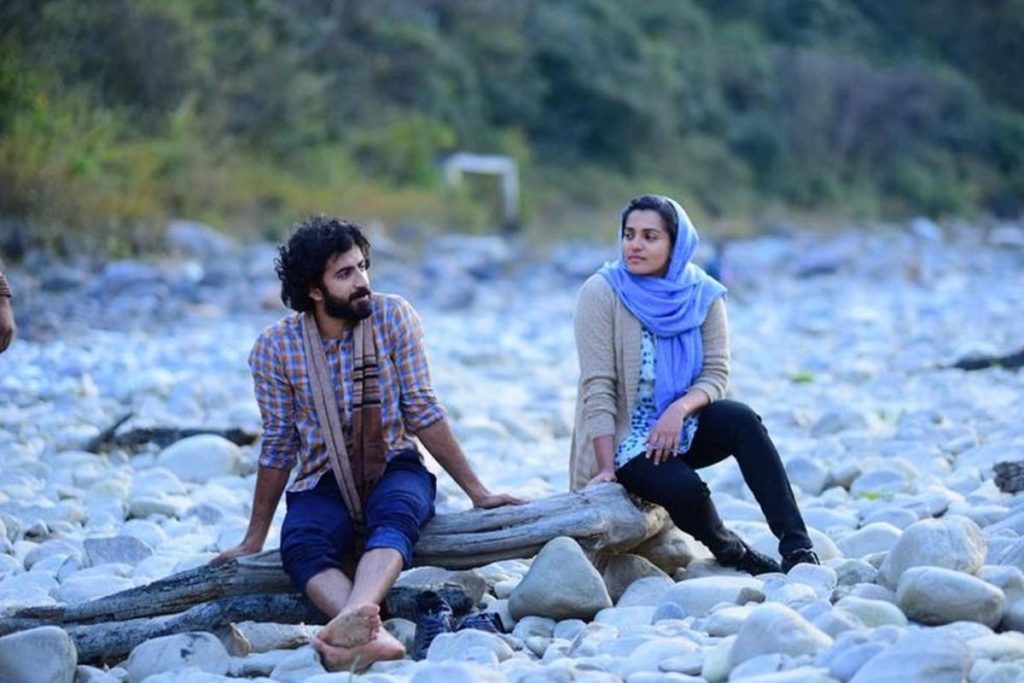
The startling side of Sidhartha Siva’s Varthamanam is that for the most part of its runtime, it does not feel like fiction. What the film attempts to portray is a series of stark realities that we see around, watch on television, read in newspapers and follow on social media – which makes it a hugely relevant film in contemporary India. But very often do films sink due to their own weight. Varthamanam, although well-intentioned, is a screenwriting and storytelling misfire.
Set in a campus modelled on New Delhi’s Jawaharlal Nehru University, the film opens around the time when Faiza (Parvathy Thiruvoth) joins as a junior research fellow. High on protests and political activism, the student communities on the campus operate on various philosophies. Be it communists, Dalit activists, centrists, or religious extremists, we get a slice of each in Siva’s film. Quickly after joining the course, Faiza is drawn into a group of like-minded friends who may not exactly have the same political leanings as her but are staunch critics of the fascist narrative in present-day Indian society. Faiza is also constantly piqued by a Hindu extremist group whereas a pro-Muslim group (which operates on similar values as the former) wants her to attend religious conventions so as she feels safe in an alien city.
If we look at it from a distance, Varthamanam presents a fascinating matrix. It isn’t necessarily a film about full-fledged college politics. There are no elections and we see no major campus brawls. There are ideological differences acknowledged quietly, with tension brimming all around and how common causes unite students from unalike backgrounds. If Amal (Roshan Mathew) is a fierce Communist, Faiza believes in Nehruvian politics. They boldly raise their voices when their Dalit friends from Andhra Pradesh and Uttarakhand face discrimination and violence. Making their group diverse (and somewhat fun) are a couple of other Malayalis and a Rajput lad from Rajasthan who has rejected upper-caste privileges.

If there is anything that the film (written by politician Aryadan Shoukath) gets right, it has to be the intent to make a statement against fascism. However, Varthamanam gets so exhausted in this process that it fails to draw definitive character arcs, interpersonal relationships, and a coherent narrative structure to keep us involved. The pacing is utterly uneven that, at times, unimportant stretches are celebrated with excessive screen time whereas crucial junctures in the screenplay get wrapped up within minutes.
If Faiza’s side-track with her local guardian is planted to be comic relief, neither are the scenes funny nor do they add value to the central plot. As a visual spectacle, I quite enjoyed the friends’ journey to Uttarakhand (to attend a wedding) but this long-ish episode does not serve as a convincing buildup to a twist that emerges later. On the contrary, powerful scenes such as Faiza’s outburst at a fascist TV reporter get knocked off in a matter of seconds. We never get a glimpse of the allegedly anti-national play that her group is supposed to be rehearsing. Plus, Faiza’s interrogation scenes are just too black-and-white to make sense of even if we accept the reality that the police force is a hugely oppressive body. Another crucial side that the film bizarrely skips is that of social media – which is where the majority of repressive, brainwashed elements thrive. It does fleetingly mention Faiza’s progressive stands on Facebook and that’s about it.
ALSO READ: ‘Kochavva Paulo Ayyappa Coelho (KPAC)’ review – for dreamers, seekers, and believers
Faiza and her friends’ equation with Professor Satheesh Pothuval (Siddique, dependable as ever), too, is not explored to the optimum. The only scene that makes a thorough impact is one where Pothuval faces the threats of certain right-wing bigwigs. I could also empathize well with the freedom fighter grandfather’s (MK Raina, compelling) bond with Faiza. Otherwise, the characters, their emotions and relationships refuse to evolve in Varthamanam.
The otherwise dependable Parvathy Thiruvothu is overly staid as Faiza. It is as if the actor wanted to air her opinions in various decibel levels – which is fair if we look at her as an individual outside the film setup – but I could not empathize with Faiza at any point. Ditto for Roshan Mathew’s Amal who is catalytic at best and the writer does not feel the need give his part some depth or a couple of layers worth pondering over.
At the cost of sounding centrist-like, Sidhartha Siva’s film refuses to offer perspectives. I do not intend to say that a war of words between both parties would make Varthamanam any more exciting. Yet, some background or a series of visual cues to establish the antagonists and their conditioned minds would have been enlightening as opposed to the film’s one-sided (and expository) writing. By the time Sidhartha Siva chooses to end his film with an over-the-top drama performance, I could only lament at the massive opportunity that was lost despite a dependable cast and crew at their disposal.
Rating: ★★

